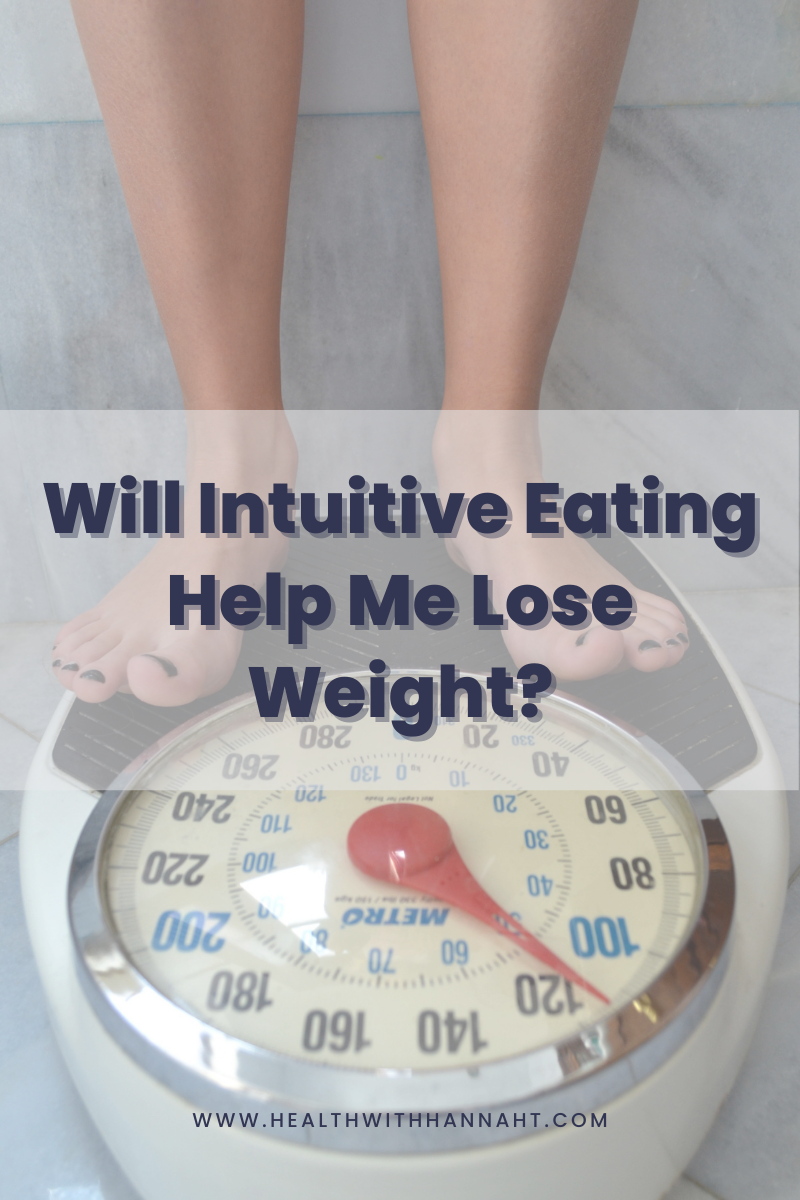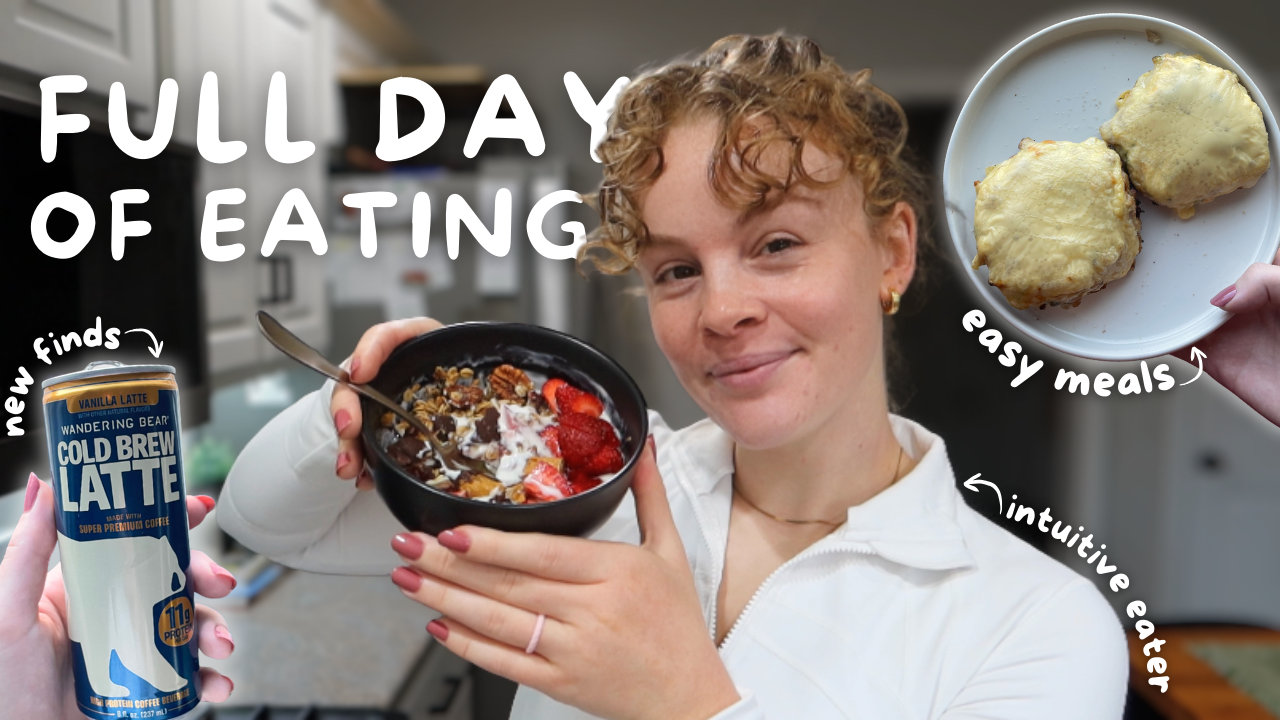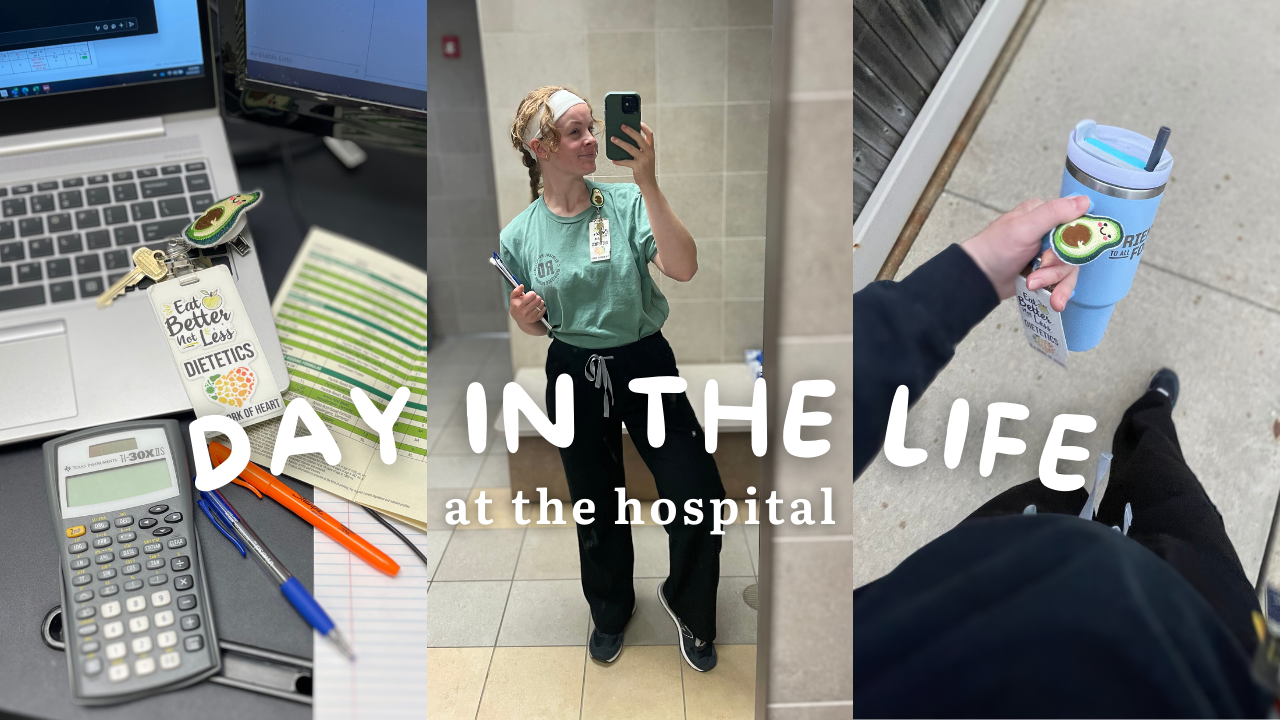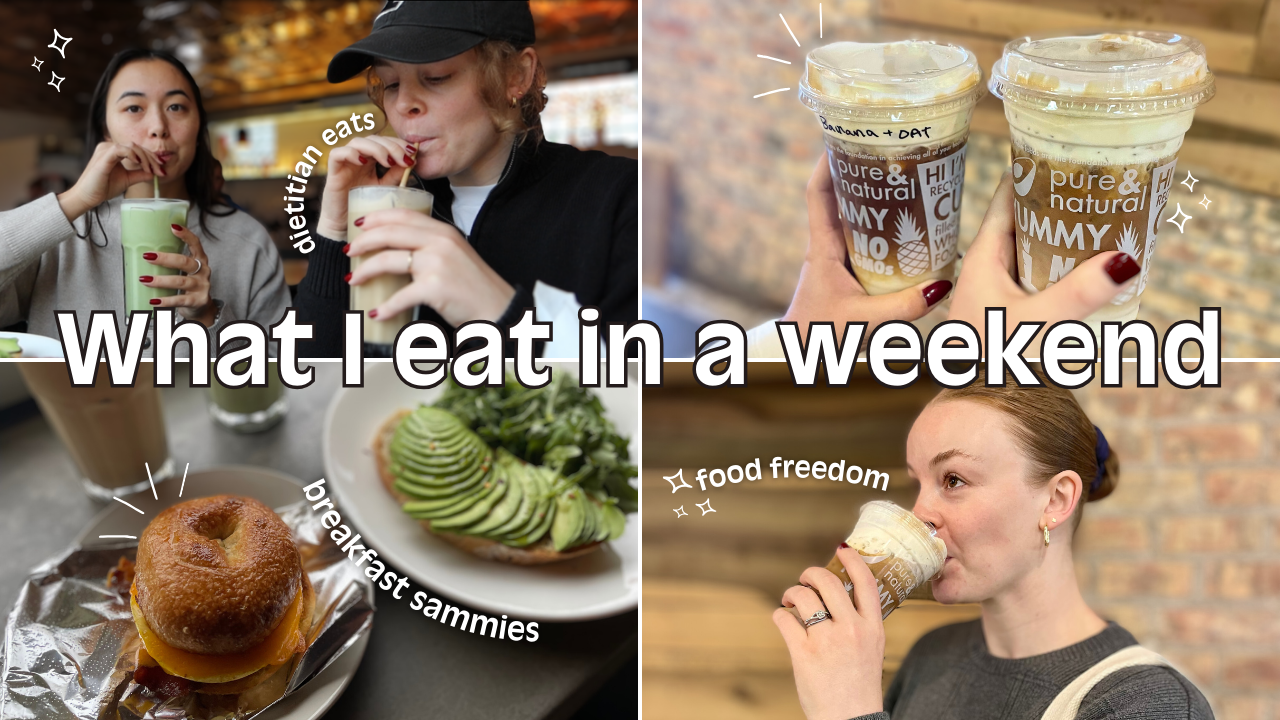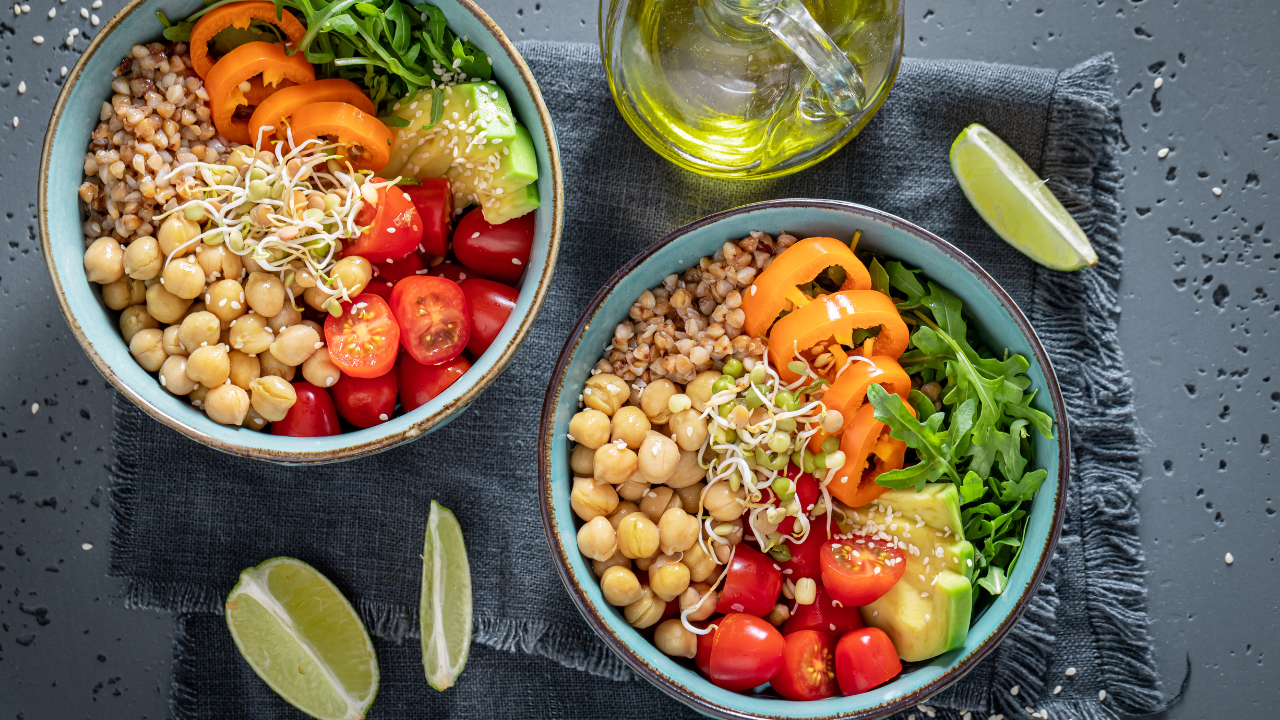Will Intuitive Eating Help Me Lose Weight?
“What will happen to my weight if I stop dieting?” This is probably the most common question I receive when I discuss intuitive eating. For many people, the fear of gaining weight is what keeps them going back to diet after diet.
I recently asked my TikTok community if the fear of weight gain is keeping them in the diet cycle and many of them said yes. This is very common and it makes a lot of sense.
Understandably, there may be a part of you that wants to lose weight. Our society puts thin people on a pedestal and glamorizes weight loss. But pursuing intentional weight loss is going to make it near impossible to become an intuitive eater. Let’s talk about why.
In this blog we will cover:
What is intuitive eating?
Can intuitive eating be used for weight loss?
Will you lose weight with intuitive eating?
“But what if I need to lose weight for health reasons?”
How to get rid of the desire to lose weight
What is intuitive eating?
Intuitive eating is a non-diet approach to eating that was developed by two registered dietitians, Evelyn Tribole and Elyse Resch. There are 10 principles of intuitive eating with a goal of helping you improve your relationship with food and your body.
Reject the diet mentality
Honor your hunger
Make peace with food
Challenge the food police
Discover the satisfaction factor
Feel your fullness
Cope with your emotions with kindness
Respect your body
Movement - feel the difference
Honor your health - gentle nutrition
New to intuitive eating and want to learn more? Check out this blog post.
Can intuitive eating be used for weight loss?
Intuitive eating is a weight neutral approach. This means that intuitive eaters remove the number on the scale from their focus and allow it to be an outcome or a side effect rather than a goal. The concept of weight neutrality can be really hard for many people to digest, and understandably so. There might still be a part of you that is wishing for weight loss, and that’s okay. You can still pursue intuitive eating as you are working through this mindset shift.
One large issue that may come alongside of using intuitive eating as a weight loss approach is that this focus on weight can inhibit our ability to listen to and trust our internal cues. Our weight is an external source of information. And intuitive eating is all about tuning in to internal cues. Using your weight as an external measurement of “progress” will take away your ability to tune in to your body’s internal signals.
Here’s a few examples of how stepping on the scale can make it difficult to eat more intuitively:
If the number on the scale is higher than you’d like, this might lead to you ignoring your hunger cues because you believe they are causing you to overeat. Or, it might lead to you saying “screw it, I’ve gained weight so why even try anymore” and result in a binge or series of binges.
If the number on the scale is lower than you expected, you may “celebrate” and eat past fullness because you have “been doing so good lately”. Or you might ignore hunger cues because you want to see that number continue to go down.
With both of these scenarios, you are tearing down any trust you have with your internal hunger and fullness cues and relying on the scale to tell you what you should eat. Using the scale as a determinant of your food choices will not be sustainable long term.
Weighing yourself can take you multiple steps back when you are working on improving your relationship with food. I’ve had clients experience this. After working together on various aspects of intuitive eating and weeks or months of building trust with inner body signals, I have had a couple clients decide to step on the scale to see what has happened to their weight. If they did not like the number they saw, they began to wonder what they were doing wrong and started to second guess their body signals. I had one client even strongly consider downloading MyFitnessPal again because she did not believe that her cues were to be trusted.
Will you lose weight with intuitive eating?
The short answer - maybe? While some people do lose weight when they ditch the diets and incorporate intuitive eating, this is not always the case for every person.
When you stop dieting, allow all foods, and honor your hunger and cravings, there are three general weight outcomes:
Weight gain with intuitive eating
Some individuals gain weight as they incorporate the intuitive eating framework. If this happens, it does not mean that you have done anything wrong, that your health has worsened, or that you should abort mission and go back to dieting. If you gain weight as a result of making peace with food, it is likely because your body needed that weight. You were probably below your set point weight and under-fueling while dieting.
Weight maintenance with intuitive eating
Some people don’t experience weight changes once they’ve become an intuitive eater. These people were likely eating amounts that their body needed.
Although weight may not have changed, there were likely many mental shifts and an improved relationship with food when going from the diet mindset to embracing intuitive eating.
Weight loss with intuitive eating
Some people lose weight while adopting intuitive eating. This is not uncommon. Weight loss may occur if you were previously binge eating, emotionally eating, or in any other fashion eating more than what your body needs.
But remember, weight loss cannot be your goal or focus while on your intuitive eating journey. Intuitive eating is about how you feel, not what you weigh.
“But what if I need to lose weight for health reasons?”
Contrary to popular belief, weight is not a good indicator of health. There is no evidence that shows being at a higher weight causes conditions such as heart disease, diabetes, or cancer.
There may be correlation between higher weight and health conditions, but this is not the same as causation. Larger body size may be presenting itself alongside other factors such as genetics, weight stigma, chronic dieting (which, surprisingly to many, is actually an indicator of weight gain rather than sustainable weight loss), environmental and social factors, and access to food, healthcare, and safe places to exercise. Yet weight is so frequently the boogeyman and weight loss is often prescribed as the way to achieve health and wellness.
Not to mention that weight is not a behavior, meaning that you cannot “do” weight loss. As mentioned previously, weight loss may result when individuals stop dieting, decrease binge eating tendencies, start incorporating more joyful movement, etc. The benefits seen from these changes, such as improvements in blood sugar, cholesterol levels, or blood pressure, are because of the behavior modifications, not the weight loss independently.
Most of the differences we see in health outcomes between thin and fat people likely has more to do with weight stigma than weight itself. People with higher bodyweights tend to avoid going to the doctor because they are shamed for their weight and conditions may be dismissed due to their body size. I have heard countless stories from patients, clients, and people in my DMs that state they have gone to their primary care provider for something like a sore throat and left with a handout on what diet they should go on.
Those in larger bodies also experience a myriad of extra stressors that those who are thinner may not such as finding clothes that fit, being on the receiving end of fat jokes, and anxiety about fitting comfortably into a chair when they go out to eat or when on an airplane.
Weight stigma has many negative health consequences, including increased blood pressure, chronic inflammation, cardiovascular disease, anxiety, stress, depression, and disordered eating habits. These consequences combined with the fact that those with higher BMIs tend to avoid going to the doctor explains a lot of the health differences we see in people with higher body weights.
How to let go of the desire for weight loss
We have been conditioned to believe that being thinner is better, so it is okay if you have the desire to lose weight, even after reading this. This desire to be smaller won’t go away over night. Body image work is hard and it goes far beyond the concept of “just love yourself”.
Here are a few questions you can ask yourself to start unpacking the belief of the thin ideal:
What are you beliefs about weight and body size? Where did you learn these beliefs?
Has pursuing weight loss ever worked for you long-term?
How has pursuing weight loss made you feel? Is there anything you had to compromise to reach your “goal” weight? What physical and emotional harm did you experience while dieting?
What did you miss out on while dieting and pursuing weight loss?
Who is benefiting from making you feel like your body does not deserve love unless its smaller? Who profits from telling you that you need to change?
Again, it’s still okay to pursue intuitive eating, even if thoughts of intentional weight loss are lingering. These thoughts will likely continue to pop up. Over time, as you build trust back with your body, these thoughts will start to be few and far between.
Try throwing away your scale, even if only for a week. I know it can feel scary! When you feel ready, you can even smash the scale - take a hammer to it. This might sound a little wild, but it will feel so good to take power back from the scale.
If you are thinking “If I don’t weigh myself, how will I measure my progress? If I accept my body then I won’t be motivated to make any health changes.” - just know that the opposite tends to be true. People are less likely to make long-term health-promoting changes when they are told they are “overweight” or “obese” and need to lose weight for “health”. The underlying message with this concept is that something is wrong with your body and there is a correct weight that you should be at. This is not very motivating if you ask me. And we also cannot know for sure what your healthiest weight truly is.
A number on the scale also does not paint a full picture. Weight loss is not always inherently health-benefiting. Instead of using the scale as a measurement of success, try focusing on health-promoting behaviors. How are you sleeping and managing stress? Are you able to sneak in more fruits and veggies? Are you drinking enough water? Have you found a form of exercise that you like and can maintain? Your weight will settle where it would like to be when you are taking care of your body to the best of your ability.
Lasty, remember that your weight does not determine your worth, your value, or your whole body health. You are so much more than your body.

